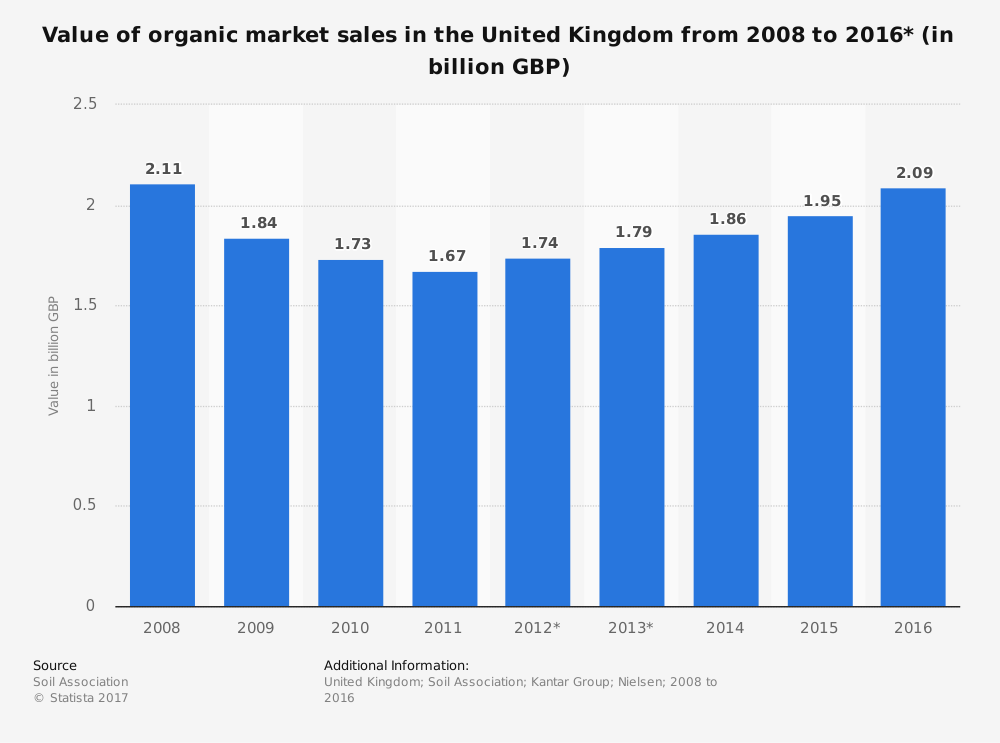Aberystwyth may not be a famous hot bed of revolution but the town and the farms in its hinterland have played a major role in the UK’s organic movement. Leading organic players such as Peter Segger and Patrick Holden set up farms in the region whilst Rachel Rowlands revolutionised the yogurt market from her dairy farm near Aberystwyth.
In the 1980s I briefly shared an office at Aberystwyth University with Nic Lampkin (now Professor Lampkin, Director of Elm Farm Research). Being a typical short-sighted marketer I advised Nic that this organic stuff would never catch on and asked why he was wasting his time writing a PhD on the subject. Perhaps that’s why I became a biscuit salesperson for McVitie’s and Nic is a globally recognised organic expert.
September is organic month. An opportunity to raise organic’s profile and encourage the consumption of more organic products. The Soil Association promotes the sector and encourages consumers, producers and trade partners to embrace organics. They are having some success.
The 2017 Organic Market Report released in February highlights the fifth year of strong growth with sales growing 7.1% in 2016 to now be worth over £2.0bn. Perhaps this growth shouldn’t be a surprise as according to Clare McDermott of the Soil Association “organic is extremely relevant for trends towards eating better food, knowing where your food comes from, avoiding pesticides or antibiotics and ‘free from’ diets.”

Of course the elephant in the room is price. Most consumers would probably prefer to buy organic but price is a barrier and at the point of purchase the premium is often difficult to reconcile. In the words of the Buying Director of a leading organic retailer, “I’m fed up of organic manufacturers creating fancy and expensive products that nobody can afford. I just want to be able to stock some basic organic products that are more affordable”. A quick review of organic biscuit ranges proves the point. Lots of esoteric and interesting recipes (eg: hemp and raisin, apple and pear, blueberry) but only a limited number of biscuits that would appear in the McVitie’s portfolio. Despite this, sales continue to increase so maybe exotic ranges are the way forward.
The organic movement has come a long way since Lady Eve Balfour founded the Soil Association in 1946. With the food industry facing many challenges such as food security, healthier food and soil erosion maybe the organic principles are even more relevant today than they were in the post World War II era.
Martin Sutherland, Commercial and Marketing Director
For more information
Email: ZERO2FIVE@cardiffmet.ac.uk
Telephone: 02920 41 6306
